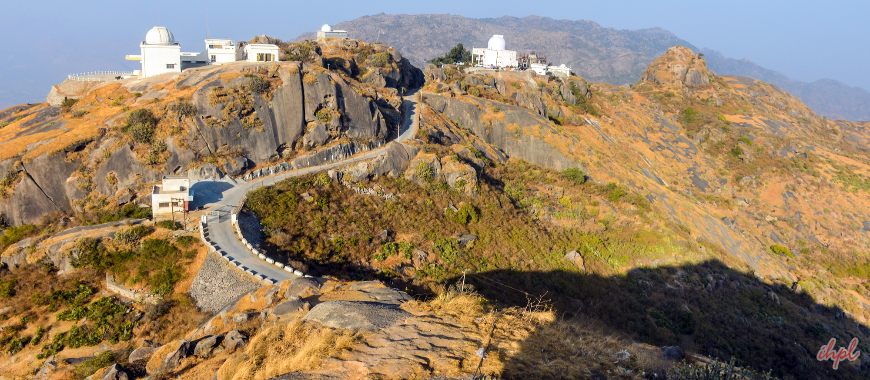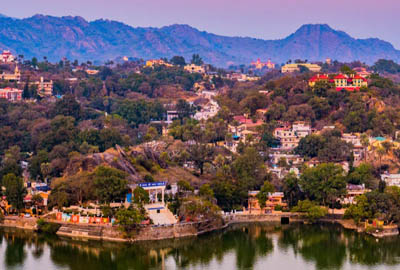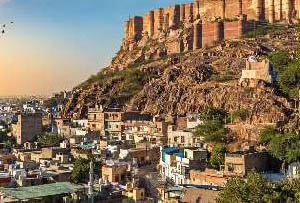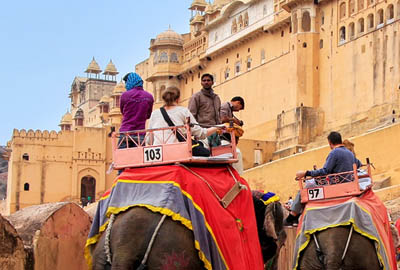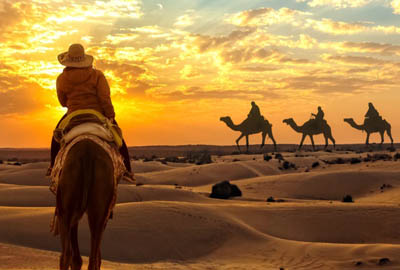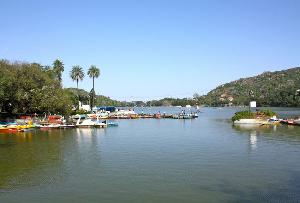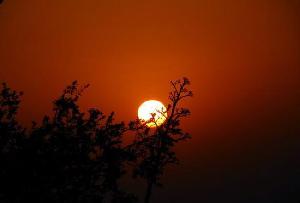Mount Abu, the only hill station in Rajasthan, offering a cool retreat with its serene lakes, lush green landscapes, and the famous Dilwara Temples. The perfect destination for nature lovers and those seeking peace. With 34 years of expertise, Indian Holiday brings you the best-customised tour packages and trusted local support, ensuring a journey as royal as Rajasthan itself.
Still, wondering why Indian Holiday is your best choice? Read this: Your Complete Guide to Stress-Free Group Travel with Indian Holiday How to Plan a Stress-Free Family Vacation with Indian Holiday
Nestled amidst the majestic Aravalli hills, Mount Abu offers a kaleidoscope of experiences waiting to be unraveled. This verdant haven, steeped in history and mysticism, beckons travelers with its unique charm year-round. Choosing the best time to visit depends entirely on your travel inclinations, as Mount Abu is painted in a different light each season.| Seasons | Months | Temperature |
|---|---|---|
| Summers | April to June | 23°C – 32°C |
| Monsoon | July to October | 17°C – 24°C |
| Winters | November to March | 12°C – 22°C |
When & Where to Visit in Mount Abu
Summer Season (April to June)
Summer in Mount Abu is characterized by moderate temperatures ranging from 23°C to 32°C. This season spans from April to June, presenting an opportunity to engage in various outdoor activities. The lively blossoms carpet the hills & valleys, and lush green landscapes create an ideal setting for exploration.
Embrace yourself in the scenic landscapes and visit popular attractions such as the Dilwara Temples and Nakki Lake The refreshing breezes add to the allure, making it an enjoyable time for relaxation. Moreover, the season also sees the infusion of vibrancy through festivals and cultural events, providing visitors with a unique and enriching venture.
Things to do in Summer
- Go boating at Nakki Lake.
- Trek through the highest peaks of Aravalli.
- Engage in cave exploration.
Embark on a journey to Rajasthan’s only hill station with our Mount Abu Tour Guide.
Explore 16 days golden triangle tour with Ranthambore wildlife Safari, 6 Days jaisalmer desert festival tour package
Mount Abu in Monsoon: July to October
Mount Abu encounters showers from July to September and is one of the best places to visit in monsoon. The nearby mountainous terrain creates a rain shadow effect, moderating the monsoon’s impact. However, the view of the drenched vegetation against the misty mountains makes the entire place fresh and green.
This season unlocks hidden pathways & cascading waterfalls along with the unpredictable weather. Immerse yourself in the unique monsoon festival of Teej, celebrating fertility and nature’s bounty. Catch a glimpse of vibrant processions, traditional dances, and a celebration of life.
Things to do in Monsoon
- Visit ancient forts & temples.
- Navigate through muddy trails on off-road jeep safaris.
- Observe the revival of traditional Rajasthani handicrafts.
Browse through our Udaipur Tour Packages from DelhiWinter Season (November to March)
The winter season in Mount Abu extends from October to February when the atmosphere transforms into a breathtaking spectacle. The cool mist adds a touch of magic and awe to the surroundings.
Daytime temperatures ranging from 12°C to 22°C create a serene ambiance, making it an ideal haven for nature enthusiasts and those searching for a peaceful retreat. This season offers perfect outdoor adventure conditions amidst the stunning backdrop.
Adding to the festive charm, Christmas is celebrated enthusiastically. The region is filled with joyous celebrations, making it a suitable time for a heartwarming and memorable visit to this scenic destination.
Things to do in Winter
- Stroll through the local markets and shop for handicrafts.
- Spot various species of flora & fauna at Mount Abu Wildlife Sanctuary.
- Marvel at the historical sites to get insights into the region’s rich heritage.
Tips for Traveling in Mount Abu
- Be mindful of the environment and practice sustainable tourism.
- Capture the beauty of Mount Abu, but be mindful of local customs and restrictions.
- Pack layers for the fluctuating winter temperatures.
Check out Rajasthan Tour Packages, Samode Tour Packages, Bundi Tour Packages, Ajmer Tour Packages, Sariska National Park Tour Packages, Jodhpur Tour Packages, Jaisalmer Tour Packages
Mount Abu Tour Packages
Things To Do in Mount Abu
FAQs
Ans. The weather in the monsoon season (July to October) and winter season (November to March) is the best for a Mount Abu visit.
Ans. Plan a 4 days trip to Mount Abu, and explore the beauty and attractions. You can also partake in outdoor adventure for a memorable holiday.
Ans. Winters are moderate in Mount Abu. The average low temperature in December is around 9°C. So there is no Mount Abu snowfall time. However, the weather is pleasant, and thus, you can enjoy sightseeing and adventure activities.
Ans. Though you can visit Mount Abu all year around, July to October sees fewer tourists. There are intermittent rainfalls, and you can save on flights and hotels if you are on a budget. Also, boating on Nakki Lake is closed during monsoon.
Ans. The average maximum temperature in Mount Abu in December remains around 20°C, and the average low temperature in December is 9°C.
Ans. Take a flight to Udaipur Airport and a bus or taxi to Mount Abu from there. Abu Road Railway Station is about 25 km and is connected to many cities in India like Delhi and Jaipur. State-run and private buses (AC/Non-AC/Deluxe/Semi-Deluxe) from nearby cities like Udaipur, Jaipur, and Ahmedabad are available.
Why Book With Us
35+
Years of Travel Experience
100+
Travel Experts To Assist You
03+
Million Satisfied Guests
Ministry
of Tourism Accredited
- 5/5 Rating:
- 4/5 Rating:

